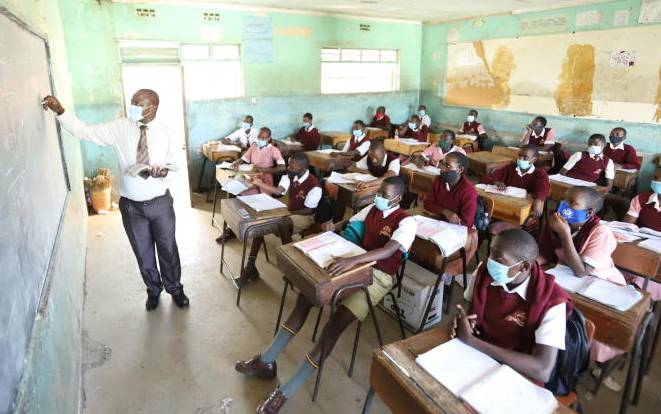×
The Standard e-Paper
Stay Informed, Even Offline

Teacher Dancan Ochieng takes Class Eight pupils through a lesson at Arya Primary School in Kisumu on November 18, 2020. {Denish Ochieng, Standard}
Education experts are worried that learners may suffer fatigue under the compressed school calendar released by the Ministry of Education on Monday.